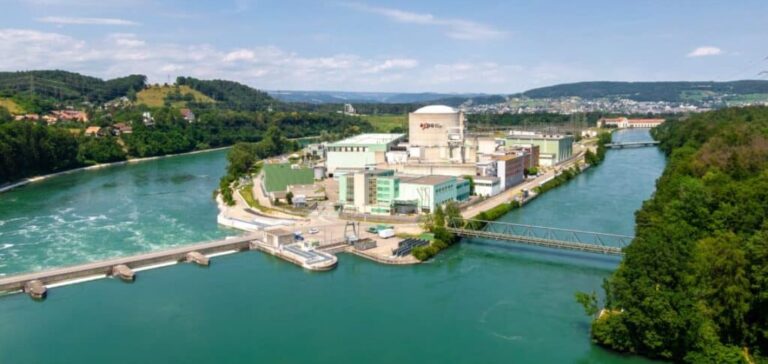After replacing the fuel elements, Axpo reconnected unit 1 of the Beznau Nuclear Power Plant (KKB) to the electricity grid on April 24. The operation marks the start of a new operating cycle for the site, which produces about one tenth of Switzerland’s electricity.
Refuelling and technical inspection
Disconnected from the grid since April 8 for a scheduled replacement of fuel elements, unit 1 of KKB had 16 of its 121 elements replaced. During this period, inspections, system tests and planned maintenance work were carried out. Nearly 150 external experts supported KKB teams during these operations.
The refuelling procedure was inspected by the International Atomic Energy Agency (IAEA) and the Swiss Federal Office of Energy (SFOE). These controls certified the compliance of the work before the progressive return to service of the installation.
Restart and production outlook
After approval by the Swiss Federal Nuclear Safety Inspectorate (ENSI), unit 1 gradually resumed operation. Full production capacity, equivalent to 365 megawatts net power, is expected to be reached within about two days.
During this ramp-up phase, steam will be intermittently visible above the non-nuclear part of the plant, located in the engine room. Axpo stated that this situation does not pose any danger to the population or to the environment.
National energy contribution
The Beznau nuclear power plant, comprising two separate units, generates around 6 terawatt hours of electricity per year. This production covers about 10% of Switzerland’s electricity needs. Each block is individually shut down in spring or summer for refuelling or revision before resuming its contribution to supply security, which is particularly important during the winter months.
According to Axpo, these scheduled operations strengthen the stability of the Swiss electricity grid while supporting the objective of maintaining consistent production in the face of increased seasonal demand.





















